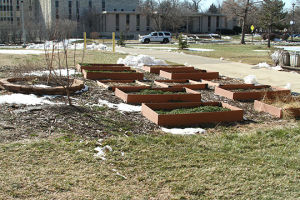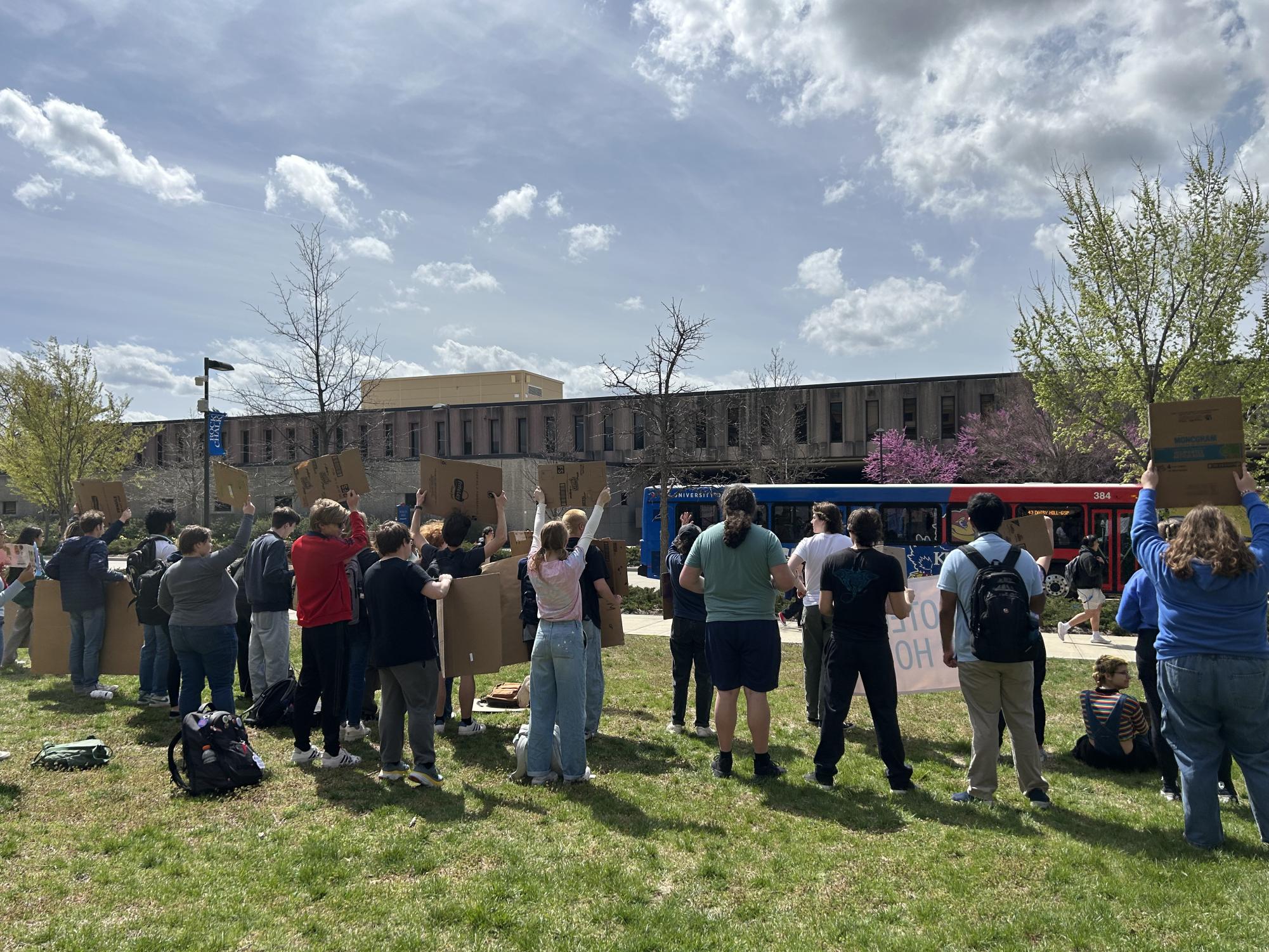Eco Bods get garden going for Spring
The organic garden that the EcoBods built last year will be planted again this year, and soon.
“The garden will probably get going early to mid April, is when we will start tilling in compost, and prepping the ground,” said Kellis Bayless, biology lecturer and faculty adviser for Ecobods. “I would expect near the end of April we will start planting, maybe even a little earlier.”
The EcoBods encourage anyone who is interested in helping water or weed the garden, to come talk to them. Judy Nickelson, VISTA coordinator and staff adviser for the EcoBods wants to stress that students interested should come talk to her to receive some basic training on garden upkeep and care. Nickelson emphasizes that if students are interested to come see her first.
“There is an opportunity to take care of the garden, anybody that really wants to, we are willing to show them the proper techniques,” said Nickelson. “Plus, it’s better that you don’t pull up the little plants with the weeds, some people don’t know the difference. It’s good to have some instructions. We would be glad to work with anybody. Even if they can’t come to the meeting or they can’t help plant or plan, that is fine, just come talk to me, I will be here.”
One planned crop for this summer will come from heirloom tomato seeds, which Kellis Bayless, associate professor and faculty adviser for the EcoBods, received from a friend. These take much care and will be started in the green house located in Stoffer Science Hall.
Starting crops from seed take much more time and care than starting them from either seedlings or small plants that haven’t bloomed yet. These are usually what the garden starts with when dealing with tomatoes. Heirloom tomatoes are different than Hot House tomatoes because the seeds have never been genetically modified. They come in all different colors, including purple, yellow and green and can be sold for twice as much as regular tomatoes.
“Heirloom tomatoes are a lot more difficult to grow than the newer hybrids, and they are leggy. They are tall and skinny, you have to stake them and they don’t produce as much,” said Judy Nickelson, EcoBods faculty adviser. “But what you do produce is worth it.”
The EcoBods donate all of their produce to the needy and last year everything went to Let’s Help Inc., a non-profit organization that provides services for those in need. There are no current plans for what they will be doing with the produce this year. Emily Engler, president of the EcoBods, is open to ideas.
The garden is special because the way it’s set up, it’s supposed to gather enough water in the barrels to self-sustain. There are a couple fixes that need to be made to the way it’s set up in order to make it easier to collect the water, but there also needs to be more moisture available to actually collect. Because of draught the garden can also be watered with a plain garden hose.
“The original design of the garden, when they first put in the barrels, they don’t work because the water collects but you can’t get the water because it’s so far down,” said Nickelson.“We haven’t been able to figure it out without having to raise the barrels a foot or 18 inches. There will need to be some cutting of the spouts, but we need to talk to maintenance for their help.”
The garden will need to be kept up over the summer and with students moving home and off campus for summer break, help will be needed to keep the crops alive.
“We really need some students who are either living here over the summer, taking classes over the summer or are willing to come and work in the garden through the summer,” said Nickelson. “There is no schedule set, but if you walk by there and see weeds that need to be pulled, pull them.”
To find out more about the garden and how to participate, the EcoBods have their weekly meetings at 6 p.m. on Wednesdays in the Wilson Room in the Living Learning Center on the second floor. Their next meeting is Wednesday, March 27. Another way to find out more information is to email Nickelson at judy.nickelson@washburn.edu or Emily Engler, president of the EcoBods at Emily.engler@washburn.edu.
Your donation will support the student journalists of Washburn University. Your contribution will allow us to purchase equipment and cover our annual website hosting costs.









